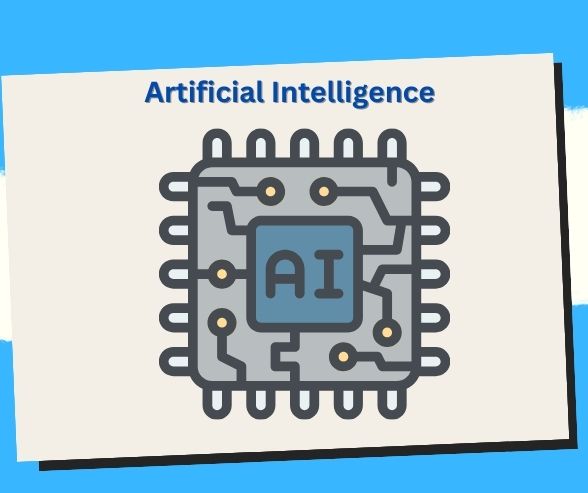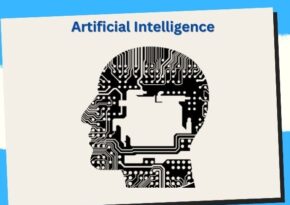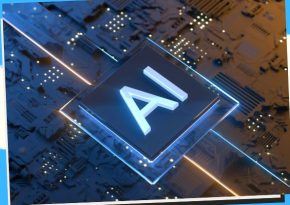
Empowering Practitioners: Strategies for Hosting AI Bias Mitigation Workshops
Uncover the latest advancements in AI bias mitigation techniques and how to effectively communicate them through engaging workshop sessions.
Unveiling Bias: A Guide to Hosting Workshops on AI Bias Mitigation Techniques
In the realm of artificial intelligence (AI), the issue of bias has garnered significant attention due to its potential to perpetuate discrimination and inequality. As AI systems increasingly influence decision-making processes in various domains, it’s imperative to equip practitioners with the knowledge and tools to identify and mitigate biases effectively. In this comprehensive guide, we’ll explore how to host workshops that delve into AI bias mitigation techniques, empowering participants to navigate the ethical complexities of AI development and deployment.
 Understanding the Impact of AI Bias
Understanding the Impact of AI Bias
Before delving into the specifics, let’s grasp why addressing AI bias is critical:
- Fairness: Bias in AI systems can lead to unfair treatment or discrimination against certain individuals or groups, perpetuating societal inequalities.
- Accuracy: Biased algorithms may produce inaccurate or unreliable results, compromising the effectiveness and reliability of AI-driven decision-making processes.
- Ethical Considerations: Mitigating bias in AI aligns with ethical principles of fairness, transparency, and accountability, ensuring that technology serves the greater good.
- Trust and Legitimacy: Addressing bias enhances trust and legitimacy in AI systems, fostering confidence among users, stakeholders, and the general public.
 Steps to Host Workshops on AI Bias Mitigation Techniques
Steps to Host Workshops on AI Bias Mitigation Techniques
Now, let’s outline a structured approach to hosting workshops that empower participants to address bias in AI:
1. Define Workshop Objectives and Audience
Begin by clarifying the objectives of the workshop and identifying the target audience. Are you aiming to educate AI developers, data scientists, policymakers, or other stakeholders? Tailor the workshop content and format to meet the needs and interests of the intended audience.
2. Select Workshop Format and Activities
Choose a format that facilitates interactive learning and engagement, such as presentations, case studies, hands-on exercises, group discussions, and role-playing scenarios. Incorporate a mix of theoretical concepts and practical techniques to provide participants with actionable insights and skills.
3. Cover Key Concepts and Topics
Provide an overview of key concepts related to AI bias, including types of bias (e.g., algorithmic bias, data bias, and representation bias), sources of bias (e.g., data collection, algorithm design, and decision-making processes), and ethical considerations (e.g., fairness, transparency, and accountability).
4. Introduce Bias Mitigation Techniques
Explore a variety of bias mitigation techniques and strategies that can be applied throughout the AI development lifecycle, including data preprocessing, algorithmic adjustments, fairness-aware modeling, bias audits, and diverse representation. Highlight real-world examples and case studies to illustrate the effectiveness and challenges of implementing these techniques.
5. Facilitate Hands-On Exercises and Discussions
Engage participants in hands-on exercises and discussions that allow them to apply bias mitigation techniques to practical scenarios and datasets. Encourage collaboration and knowledge sharing among participants, fostering a supportive learning environment where diverse perspectives are valued.
6. Provide Resources and Follow-Up Support
Offer participants access to resources, tools, and reference materials to support their continued learning and application of bias mitigation techniques. Establish channels for ongoing support, such as online forums, communities of practice, and follow-up consultations, to address questions, challenges, and feedback.
 Key Considerations and Tips
Key Considerations and Tips
- Accessibility: Ensure that the workshop venue, materials, and activities are accessible to participants with diverse abilities and needs.
- Diversity and Inclusion: Prioritize diversity and inclusion in workshop facilitation, content, and representation to foster a welcoming and inclusive learning environment.
- Ethical Guidelines: Emphasize the importance of ethical considerations and responsible AI development practices throughout the workshop, encouraging participants to uphold principles of fairness, transparency, and accountability.
- Continuous Learning: Encourage participants to continue learning and staying updated on AI bias mitigation techniques through self-study, professional development opportunities, and community engagement.
Benefits of Hosting Workshops on AI Bias Mitigation Techniques
- Promoting Ethical AI: Workshops raise awareness about the importance of addressing bias in AI algorithms, fostering a culture of ethical AI development and deployment.
- Enhancing Algorithmic Fairness: Participants learn techniques to detect and mitigate bias in AI models, promoting fairness and equity in algorithmic decision-making processes.
- Building Trust and Confidence: By addressing bias, workshops contribute to building trust and confidence in AI systems among users, stakeholders, and the broader public.
- Reducing Harm: Mitigating bias helps prevent harmful outcomes, such as discrimination and unfair treatment, thereby safeguarding the rights and dignity of individuals affected by AI systems.
- Improving Decision-Making: Bias mitigation techniques enhance the accuracy and reliability of AI systems, improving decision-making processes in various domains, including healthcare, finance, and criminal justice.
- Legal and Regulatory Compliance: Workshops help organizations understand and comply with legal and regulatory requirements related to bias in AI, reducing the risk of litigation and reputational damage.
- Innovation and Creativity: By fostering discussion and collaboration, workshops stimulate innovation and creativity in developing bias mitigation techniques, leading to the advancement of AI technologies.
- Empowering Diverse Perspectives: Workshops provide a platform for diverse voices and perspectives to contribute to bias mitigation efforts, ensuring that solutions are inclusive and reflective of societal values.
- Capacity Building: Participants gain skills and knowledge to implement bias mitigation techniques in AI projects, building capacity within organizations and communities to address bias effectively.
- Social Impact: By mitigating bias in AI systems, workshops contribute to social justice and equity, promoting a more inclusive and equitable society.
Case Studies: Successful Workshops on AI Bias Mitigation Techniques
- Google’s AI Fairness Workshops: Google hosts workshops on AI fairness, inviting researchers, practitioners, and policymakers to discuss best practices and challenges in mitigating bias in AI systems.
- IBM’s Bias Mitigation Bootcamps: IBM offers bias mitigation boot camps for developers and data scientists, providing hands-on training on detecting and addressing bias in AI models using tools and techniques developed by IBM Research.
- Microsoft’s Responsible AI Workshops: Microsoft conducts responsible AI workshops for its employees and partners, covering topics such as fairness, transparency, and accountability in AI development and deployment.
- AI Ethics Workshops by Ethics in AI Research Lab: The Ethics in AI Research Lab organizes workshops on AI ethics and bias mitigation techniques, engaging academia, industry, and civil society in discussions on ethical AI practices.
- University of Toronto’s Fairness in AI Workshops: The University of Toronto hosts workshops on fairness in AI, bringing together researchers, policymakers, and community members to explore strategies for addressing bias in AI systems.
- Stanford University’s AI Bias Workshops: Stanford University offers workshops on AI bias, featuring lectures, case studies, and hands-on exercises to educate students and professionals on identifying and mitigating bias in AI algorithms.
- NYU’s AI Bias Hackathons: New York University organizes AI bias hackathons, where participants collaborate to develop innovative solutions for detecting and mitigating bias in AI models, with a focus on real-world applications and impact.
- MIT’s Bias and Fairness Symposium: MIT hosts symposiums on bias and fairness in AI, convening experts from academia, industry, and government to discuss cutting-edge research and best practices in addressing bias in AI systems.
- AI Ethics and Bias Seminars by OpenAI: OpenAI conducts seminars on AI ethics and bias, covering topics such as algorithmic fairness, interpretability, and accountability, with a focus on promoting responsible AI development and deployment.
- Community-Led Bias Mitigation Workshops: Community organizations and advocacy groups host grassroots workshops on bias mitigation in AI, empowering individuals from underrepresented communities to advocate for fairness and equity in AI technologies.
Key Takeaways for Hosting Workshops on AI Bias Mitigation Techniques
- Tailored Content: Customize workshop content to the needs and expertise of participants, covering fundamental concepts as well as advanced techniques in AI bias mitigation.
- Hands-On Activities: Incorporate hands-on exercises, case studies, and interactive discussions to engage participants and reinforce learning objectives.
- Diverse Perspectives: Encourage participation from diverse stakeholders, including researchers, practitioners, policymakers, and affected communities, to enrich discussions and foster collaborative problem-solving.
- Practical Applications: Highlight real-world examples and case studies to demonstrate the impact of bias in AI systems and the effectiveness of mitigation techniques in addressing these challenges.
- Ethical Considerations: Emphasize the ethical implications of bias in AI and the importance of responsible AI development and deployment to ensure that workshop participants are aware of their ethical responsibilities.
- Continuous Learning: Offer resources and follow-up opportunities for continued learning and skill development in AI bias mitigation, such as online courses, webinars, and community forums.
- Community Engagement: Foster ongoing dialogue and collaboration within the community to sustain momentum and drive collective action in addressing bias in AI systems beyond the workshop.
- Feedback and Evaluation: Solicit feedback from participants to assess the effectiveness of the workshop and identify areas for improvement in future iterations, ensuring that workshop outcomes meet the needs of stakeholders.
- Partnerships and Collaboration: Forge partnerships with academia, industry, government, and civil society organizations to leverage expertise, resources, and networks in hosting workshops on AI bias mitigation.
- Commitment to Action: Encourage participants to commit to concrete actions and initiatives to promote fairness and equity in AI systems within their organizations and communities, fostering a culture of responsible AI development and deployment.
FAQs: Addressing Common Concerns about Workshops on AI Bias Mitigation Techniques
1. Why is bias mitigation important in AI development?
- Bias mitigation is important to ensure that AI systems produce fair and equitable outcomes, free from discrimination or unfair treatment, and to build trust and confidence in AI technologies among users and stakeholders.
2. What types of bias can occur in AI systems?
- Bias in AI systems can manifest in various forms, including data bias, algorithmic bias, and societal bias, leading to unfair or discriminatory outcomes that disproportionately impact certain individuals or groups.
3. How can bias be detected in AI algorithms?
- Bias in AI algorithms can be detected through various methods, including statistical analysis, fairness metrics, and domain-specific audits, which help identify disparities or inequities in algorithmic outcomes.
4. What are some common techniques for mitigating bias in AI models?
- Common techniques for mitigating bias in AI models include data preprocessing, algorithmic adjustments, fairness-aware machine learning algorithms, and post-processing interventions, aimed at reducing or eliminating bias in algorithmic decision-making.
5. Are there legal or regulatory requirements related to bias mitigation in AI?
- Yes, some jurisdictions have enacted laws or regulations that require organizations to address bias in AI systems, such as the General Data Protection Regulation (GDPR) in Europe or the Algorithmic Accountability Act proposed in the United States.
6. How can organizations implement bias mitigation techniques in AI projects?
- Organizations can implement bias mitigation techniques in AI projects by integrating fairness considerations into the entire AI development lifecycle, from data collection and model training to deployment and monitoring, and by fostering a culture of ethical AI within their teams.
7. What challenges might organizations face when addressing bias in AI?
- Organizations may face challenges such as limited awareness or expertise in AI bias mitigation, data quality issues, algorithmic complexity, and balancing fairness objectives with other considerations such as accuracy and efficiency.
8. Can bias be completely eliminated from AI systems?
- While it may not be possible to completely eliminate bias from AI systems, organizations can strive to minimize bias and mitigate its impact through proactive measures, transparency, and accountability mechanisms.
9. How can individuals contribute to bias mitigation efforts in AI?
- Individuals can contribute to bias mitigation efforts in AI by raising awareness, advocating for ethical AI practices, participating in training and education programs, and holding organizations accountable for responsible AI development and deployment.
10. What resources are available to support organizations in addressing bias in AI?
- There are various resources available, including guidelines, toolkits, research papers, and training programs provided by industry consortia, research institutes, non-profit organizations, and government agencies, which offer practical advice and best practices for addressing bias in AI systems.
Hosting workshops on AI bias mitigation techniques plays a crucial role in fostering a culture of responsible AI development and deployment, promoting fairness, transparency, and accountability in AI systems. By equipping stakeholders with the knowledge, skills, and tools to detect and mitigate bias, these workshops contribute to building more inclusive and equitable AI technologies that benefit society as a whole.
Conclusion
By following these guidelines and hosting workshops on AI bias mitigation techniques, organizers can empower participants to address bias effectively in AI systems, fostering fairness, transparency, and accountability in technology development and deployment. Together, let’s strive to build more equitable and inclusive AI-driven solutions that benefit society as a whole.
Key Phrases
- AI Bias Mitigation
- Workshop Hosting
- Ethical AI
- Bias Awareness
- Fairness in Algorithms
- Inclusivity Promotion
- Mitigation Techniques
- Ethical Challenges
- Practitioner Empowerment
- Diversity and Equity
Best Hashtags
- #AIBiasMitigation
- #WorkshopHosting
- #EthicalAI
- #BiasAwareness
- #AlgorithmFairness
- #InclusiveTech
- #MitigationTechniques
- #AIethics
- #DiversityEquityInclusion
- #PractitionerEmpowerment
Save/Share this story with QR CODE
Disclaimer
This article is for informational purposes only and does not constitute endorsement of any specific technologies or methodologies and financial advice or endorsement of any specific products or services.
 Need to get in touch?
Need to get in touch?

We appreciate your reading. 
1.) 

Your DONATION will be used to fund and maintain NEXTGENDAY.com
Subscribers in the Philippines can make donations to mobile number 0917 906 3081, thru GCash.
3.) 
4.) 
AFFILIATE PARTNERS

World Class Nutritional Supplements - Buy Highest Quality Products, Purest Most Healthy Ingredients, Direct to your Door! Up to 90% OFF.
Join LiveGood Today - A company created to satisfy the world's most demanding leaders and entrepreneurs, with the best compensation plan today.

 Business, Finance & Technology
Business, Finance & Technology

 Ensuring Fair AI: The Crucial Role of Diverse Training Data
Ensuring Fair AI: The Crucial Role of Diverse Training Data 









 The AI Revolution: Redefining Creativity and Careers
The AI Revolution: Redefining Creativity and Careers 
 From imagination to reality: uncover the profound influence of […]
From imagination to reality: uncover the profound influence of […]